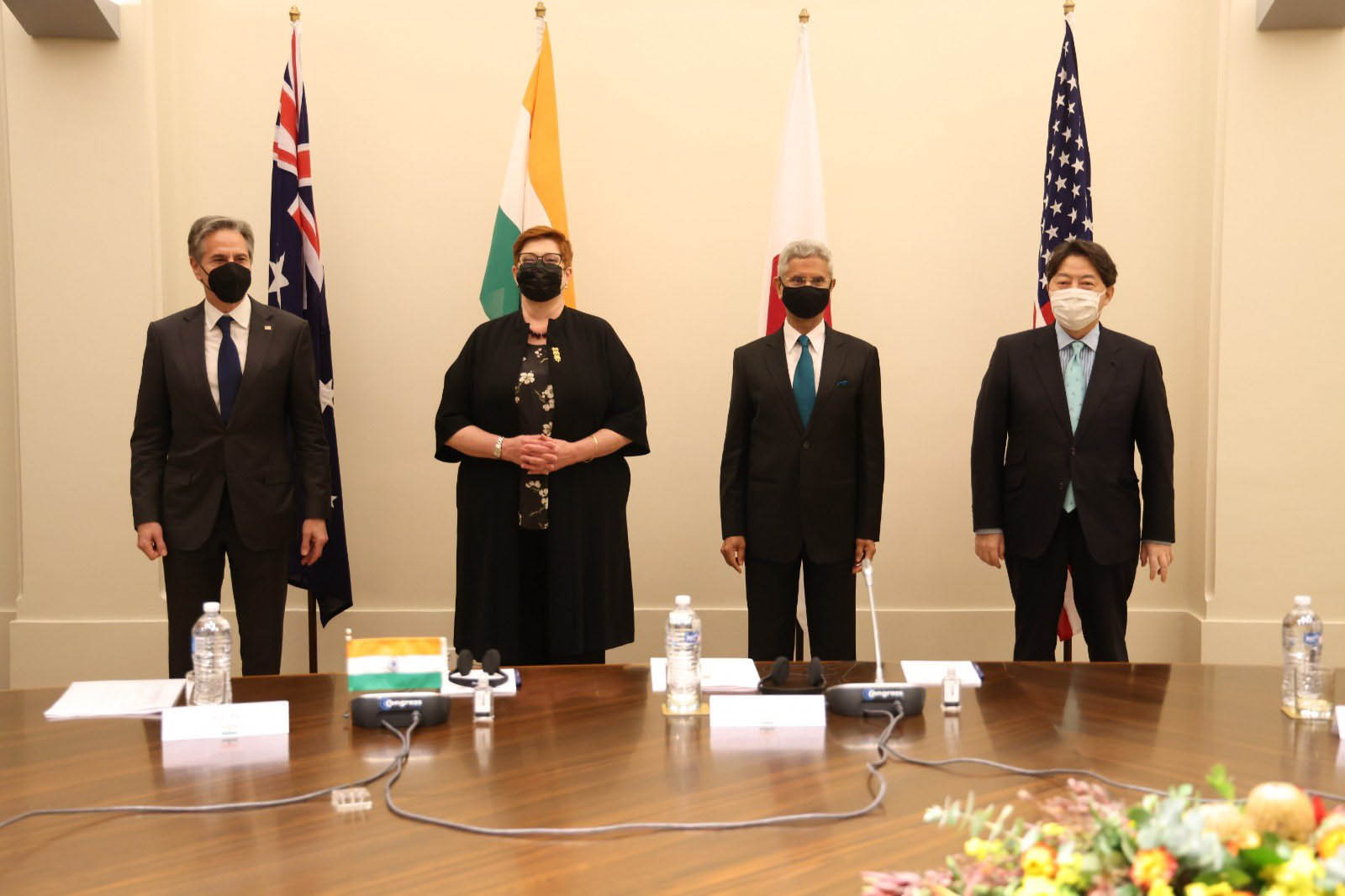Australia, Feb 11: Reaffirming their condemnation of terrorist attacks in India including 26/11 Mumbai and Pathankot attacks, Quad countries on Friday denounced the use of terrorist proxies for cross-border terrorism and urged countries to work together to eliminate terrorist safe havens, disrupt terrorist networks and the infrastructure and financial channels which sustain them.
A joint statement issued after a meeting of Quad Foreign Ministers here called upon all countries to ensure that territory under their control “is not used to launch terror attacks” and to expeditiously bring to justice the perpetrators of such attacks.
The statement reflected concerns of India which has been a victim of cross-border terrorism from Pakistan.
The meeting, attended by Foreign Ministers India, Australia and Japan and the Secretary of State of the United States, said the Quad is exchanging information on ever-evolving threats and working with Indo-Pacific countries, and in multilateral fora, to counter all forms of terrorism and violent extremism.
“We denounce the use of terrorist proxies for cross-border terrorism and urge countries to work together to eliminate terrorist safe havens; disrupt terrorist networks and the infrastructure and financial channels which sustain them, and halt the cross-border movement of terrorists,” the statement said.
“In this context, we call on all countries to ensure that territory under their control is not used to launch terror attacks and to expeditiously bring to justice the perpetrators of such attacks. We reiterate our condemnation of terrorist attacks in India, including 26/11 Mumbai and Pathankot attacks,” it added.
Seven security personnel were killed in a terror attack at Pathankot air force base in January 2016. The terror attack in Mumbai by Pakistan-trained terrorists on November 26, 2008 killed 166 people including foreign nationals.
The Quad foreign ministers reaffirmed UNSC Resolution 2593 (2021) that Afghan territory should not be used to threaten or attack any country, shelter or train terrorists, or plan or finance terrorist acts, “with such ungoverned spaces being a direct threat to the safety and security of the Indo-Pacific”.
The foreign ministers welcomed progress on the practical cooperation to address regional challenges, including humanitarian assistance and disaster response (HADR), maritime security, counter-terrorism, countering disinformation and cyber security.
The statement said Quad is supporting regional neighbours to build resilience and counter disinformation.
“We will also coordinate efforts to assist partners across the Indo-Pacific to address the growing threat of ransomware, by strengthening capacity building to ensure resilient cyber security and to counter cybercrime. We are committed to promoting international peace and stability in cyberspace, and to helping build the capacity of regional countries to implement the UN Voluntary Framework for Responsible State Behaviour in Cyberspace,” it said.
The statement said Quad partners champion the free, open, and inclusive rules-based order, rooted in international law, that protects the sovereignty and territorial integrity of regional countries.
“We reaffirm our commitment to upholding and strengthening the rules-based multilateral trading system, with the World Trade Organization at its core. We oppose coercive economic policies and practices that run counter to this system and will work collectively to foster global economic resilience against such actions,” it said.
“We express our commitment to strengthen our diplomatic efforts so that the vision for technologies, guided by the Quad Principles on Technology Design, Development, Governance, and Use, will be further shared by all like-minded nations,” the statement added.
It was the first meeting of Quad Foreign Ministers since the Quad Summit held in the United States last year. The meeting was attended by External Affairs Minister S Jaishankar, Australian Foreign Minister Marise Payne, Japan Foreign Minister Hayashi Yoshimasa and the United States Secretary of State Antony Blinken. (Agencies)
Trending Now
E-Paper


